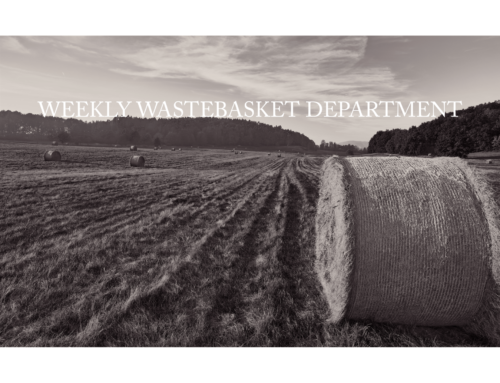Any day now, the Environmental Protection Agency is expected to announce final volumes of biofuels required to be blended with U.S. gasoline and diesel this calendar year. By law, EPA is required to announce Renewable Fuel Standard volumes by Nov. 30 for the upcoming year. It missed this deadline last year, meaning the agency is already way behind schedule to finalize the amount of biofuels to be blended in 2014.
The 2007 energy bill, the Energy Independence and Security Act, already mandates that fuel suppliers blend 18.15 billion gallons of renewable fuels in 2014. However, production of so-called “advanced” biofuels produced from non-food crops such as perennial grasses and agricultural residues has fallen drastically short of Congress’ unrealistic mandate so, in November 2013, EPA used its waiver authority to reduce overall volumes under the standard by 17 percent – about 3 billion gallons – to more closely mirror actual production levels.
Rumor has it the agency will backpedal from the more practical, lower levels proposed in late 2013 and increase volumes. In the initial proposed rule (currently being finalized), EPA suggested reducing mandates for both conventional biofuels (corn ethanol) and advanced biofuels, primarily due to a lack of commercial production of cellulosic biofuels. EPA also recognized the U.S. is hitting the “blend wall,” or the maximum amount of biofuels that can safely be used in our fuel supply without causing incompatibility and liability issues with older vehicles or smaller, off-road engines. If EPA fails to stick to these more realistic volumes in its final rule, more unintended consequences, long-term liabilities and unnecessary consumer and taxpayer costs will ensue. An increase in volumes could allow other corn-based biofuels such as corn biobutanol to fill the advanced biofuels mandate instead of next-generation biofuels produced from non-food crops. Adding more food-to-fuel options just poses the threat of raising prices for both.
For more than a decade, biofuels were sold as a way to help achieve American energy independence, reduce greenhouse gas emissions and spur rural economic development. However, as several independent analysts have recently shown, overall the Renewable Fuel Standard causes more harm than good. Its costs outweigh its benefits, and it continues to fall short of its stated goals.
A 2014 Congressional Budget Office report confirmed what Taxpayers for Common Sense has said for years – if corn ethanol production increases to meet 2015 targets, corn prices and food prices will increase further. The majority of U.S. ethanol is produced from corn, utilizing 40 percent of the crop each year. CBO also concluded that if volumes under the standard continue on auto-pilot (except for cellulosic ethanol), fuel prices will increase: The price of 10 percent ethanol, the primary gasoline blend in the U.S., will increase 13 to 26 cents per gallon, and the price of diesel will jump 30 to 51 cents per gallon. Finally, while corn ethanol and other biofuels were initially promised as a way to reduce greenhouse gas emissions, CBO acknowledged that corn ethanol actually increases greenhouse gas emissions.
Adding insult to taxpayer injury, aside from this government mandate, the U.S. biofuels industry also enjoys an array of federal subsidies, special interest tax breaks, loan guarantees, and a variety of other supports such as U.S. Department of Agriculture bioenergy subsidies. Numerous opportunities to influence future biofuels subsidies and mandates will crop up later this year. A package of special interest tax breaks known as tax extenders, which receives perpetual short-term extensions, typically includes extension of the recently-expired biodiesel, cellulosic ethanol and biofuels infrastructure tax credits.
EPA has a chance in coming weeks to at least make the mandate more flexible and reflective of current market conditions. Consumers and taxpayers alike deserve a break from the higher costs for food, fuel, and other items that this mandate would, well, mandate.














Get Social